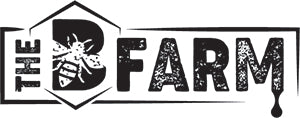At the epicenter of a hive, queen bees reign, and their welfare is the key to promoting productivity in the hive and improving its longevity. Beekeepers are intimately familiar with the significance of a healthy queen. Through strategic management and keen observation, keepers can ensure their queen bees lead robust colonies. Here are five tips for maintaining healthy queen bees.
Establish a Strong Genetic Line
A queen’s genetics are fundamental. It’s like the foundation of a high-rise building; the building will stand tall for years to come if it’s solid. Begin by sourcing your queen from a reputable breeder known for their quality stock. This step initiates a strong start to a thriving hive, but it doesn’t end there. Regularly introduce new genetics to your bee yard by requeening annually or every other year so the gene pool remains resilient and diverse. A high-quality queen bee significantly improves your hive’s offspring.
Provide a Balanced Diet
Bee nutrition is all about essential nutrient provision. Your queen, like every bee, needs a balanced diet to lay fertilized eggs and produce pheromones to stabilize the hive. Ensure she has access to different pollens and nectars. Some beekeepers use pollen traps to collect and feed pollen back to their colonies. Additionally, supplementing with protein patties and sugar syrup is necessary, especially during times of nectar dearth to support brood production.
Monitor and Minimize Stress
Stress isn’t just a human problem; bees also experience it. Environmental factors, hive manipulations, and pests can all contribute to stress. You can address issues that may be placing undue strain on the colony by routinely checking your hives. Consider techniques such as integrated pest management (IPM) to minimize the use of chemical interventions on your queen and her colony.
Maintain Optimal Hive Conditions
Keeping your hive environment queen-friendly is essential. This idea means managing temperature and humidity, ensuring adequate ventilation, and avoiding prolonged periods of wet conditions. Colonies that receive loving care and are not excessively disturbed have the best chances of maintaining a healthy queen.
Evaluate and Plan for Swarming
Swarming is a queen’s instinct, but it can also leave a hive vulnerable. Monitor for signs of queen cells and consider creating artificial swarms or conducting splits to prevent the loss of a queen. It’s important to note that swarming is not always a negative event and is sometimes necessary to prevent overcrowding. Understanding the nuances and dynamics of your hive will help you determine the best course of action.
Maintaining healthy queen bees is important for beekeeping success. It’s all about good genes, the right food, less stress, taking care of the environment, and managing the bee population. A strong queen bee means a happy, buzzing colony, which boosts hive health and productivity.
Create a Stronger Hive With The B Farm
At The B Farm, we’re all about hooking beekeepers up with mated queen bees that have formidable genetics, helping you keep your colonies strong and productive. Let’s build out your hive with mated queen bees for sale. Our shop is open for you to peruse and learn more about beekeeping and how to manage your apiary.
